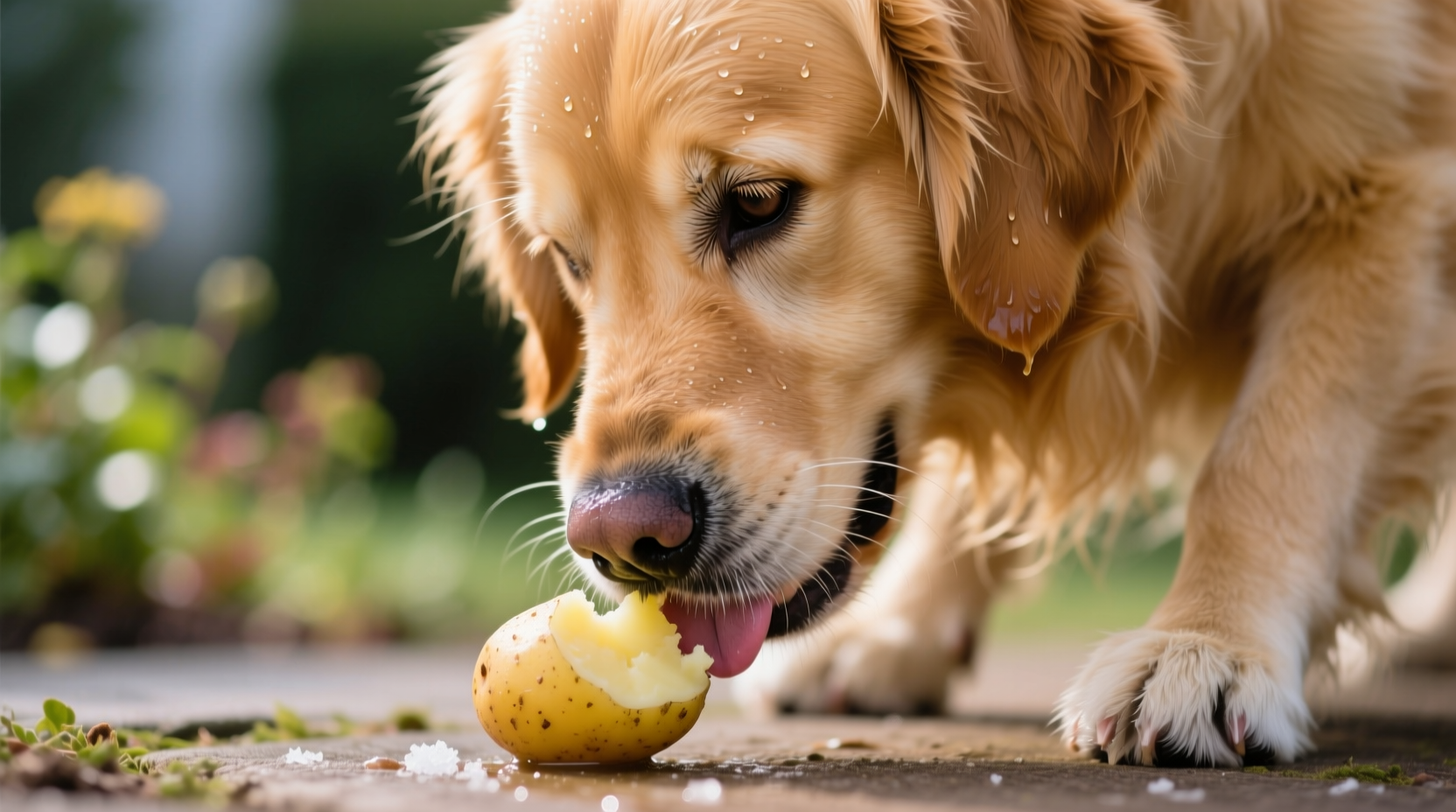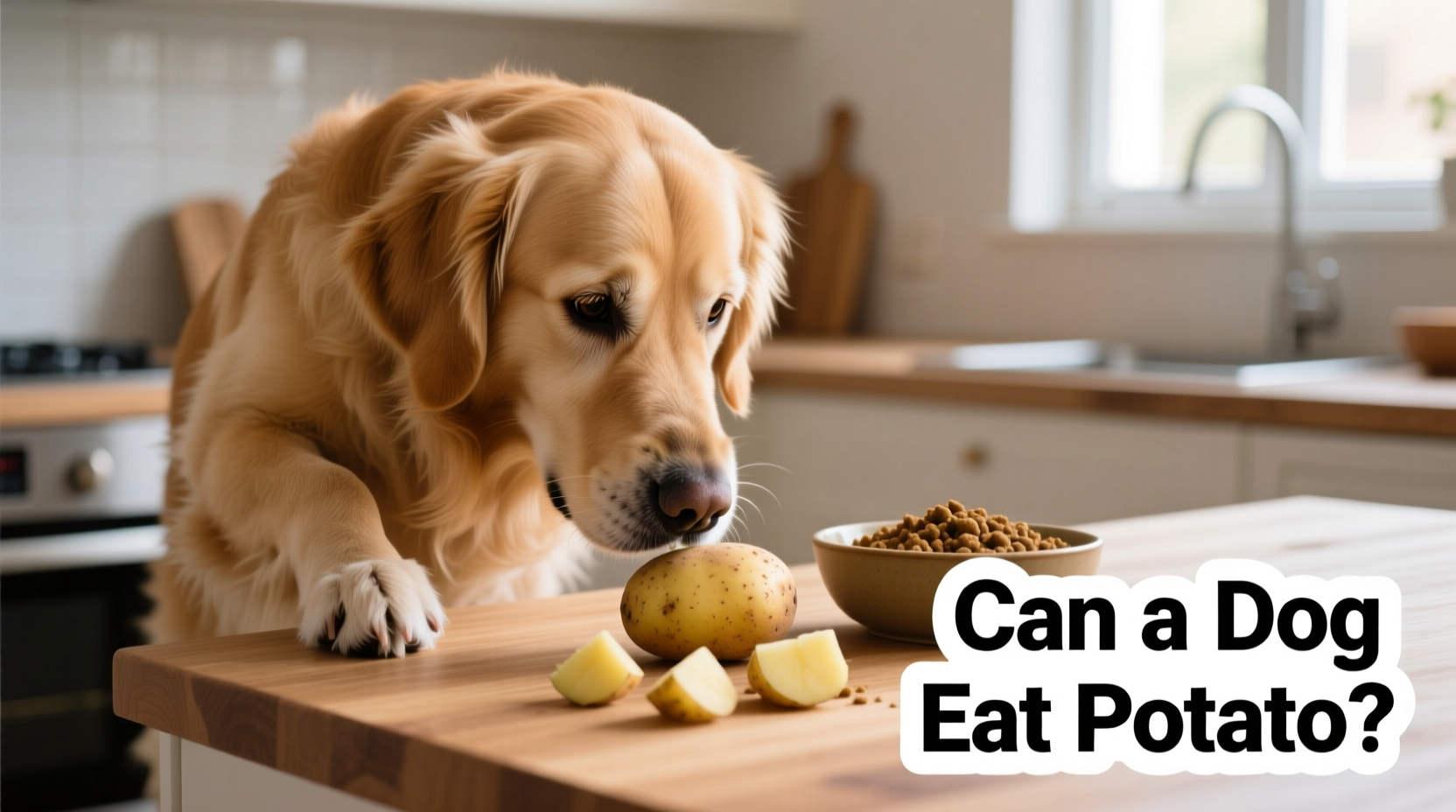Yes, dogs can eat plain cooked potatoes in moderation, but raw potatoes and green potatoes are dangerous due to toxic compounds. Never feed seasoned, fried, or processed potato products to dogs. This guide explains exactly how to safely incorporate potatoes into your dog's diet, identifies critical warning signs of potato toxicity, and provides veterinarian-approved preparation methods.
Understanding Potato Safety for Dogs: What Every Owner Must Know First
When your dog sneaks a bite of potato or you're considering adding it to their diet, immediate clarity matters. Potatoes aren't inherently toxic to dogs, but specific preparation methods and portions determine safety. The critical distinction lies between cooked white potatoes and raw or green potatoes.
Veterinary experts at the ASPCA Animal Poison Control Center confirm that cooked potatoes without seasoning pose minimal risk in small quantities. However, raw potatoes contain solanine—a glycoalkaloid toxin that affects the nervous system. Green potatoes or sprouted areas concentrate up to five times more solanine, making them particularly hazardous.
| Potato Type | Safety for Dogs | Key Risk Factors |
|---|---|---|
| Plain boiled/baked white potato | ✅ Safe (in moderation) | High carbohydrate content; no seasoning |
| Raw white potato | ⚠️ Dangerous | Solanine concentration (0.1-0.5mg/g) |
| Green/sprouted potato | ❌ Highly toxic | Solanine up to 2.0mg/g; causes neurological symptoms |
| Sweet potato (cooked) | ✅ Safest option | No solanine; rich in fiber and beta-carotene |
The Science Behind Potato Toxicity in Dogs
Understanding why certain potatoes harm dogs requires examining their biochemical composition. Solanine and chaconine—natural pesticides produced by potato plants—interfere with acetylcholine breakdown in dogs' nervous systems. Research published in the Journal of Veterinary Pharmacology and Therapeutics shows dogs lack sufficient enzymes to metabolize these compounds efficiently.
The Veterinary Information Network documents cases where dogs consuming raw potatoes exhibited symptoms within 8-12 hours. Critical context boundaries include:
- Dose dependency: A 50lb dog would need to consume approximately 1lb of raw potato to reach toxic levels
- Breed sensitivity: Herding breeds (Collies, Shetland Sheepdogs) show higher vulnerability due to MDR1 gene mutation
- Pre-existing conditions: Dogs with diabetes or pancreatitis face greater risks from potato's high glycemic index

Safe Potato Preparation Protocol for Dogs
When preparing potatoes for canine consumption, follow this veterinarian-endorsed method:
- Choose firm, non-green potatoes without sprouts
- Peel thoroughly to remove solanine-concentrated skin
- Boil or bake without oil, salt, or seasonings
- Cool completely and dice into bite-sized pieces
- Limited portions: Maximum 1-2 tablespoons per 10lbs body weight
The American College of Veterinary Nutrition emphasizes that potatoes should never exceed 10% of a dog's daily caloric intake. For most adult dogs, this translates to no more than ¼ cup of cooked potato 1-2 times weekly. Puppies and senior dogs should avoid potatoes entirely due to developing or compromised digestive systems.
Recognizing and Responding to Potato Toxicity
Immediate action is critical if your dog consumes raw or green potatoes. Symptoms typically follow this progression timeline:
- 0-8 hours: Vomiting, diarrhea, abdominal pain
- 8-24 hours: Weakness, confusion, dilated pupils
- 24-72 hours: Tremors, difficulty breathing, cardiac abnormalities
Contact your veterinarian immediately if your dog shows any symptoms after potato consumption. The ASPCA Animal Poison Control Center (888-426-4435) recommends noting:
- Approximate quantity consumed
- Type of potato (raw, green, cooked)
- Time of ingestion
- Current symptoms observed
Better Vegetable Alternatives for Dogs
While plain cooked potatoes are occasionally safe, these vegetables offer superior nutritional profiles with fewer risks:
- Steamed carrots: Rich in beta-carotene, supports vision health
- Green beans: Low-calorie crunch satisfying for weight management
- Cucumber slices: Hydrating with minimal sugar content
- Cooked sweet potato: Higher fiber and vitamin A than white potatoes
Always introduce new foods gradually over 7-10 days while monitoring for digestive upset. Consult your veterinarian before making dietary changes, especially for dogs with chronic health conditions.











 浙公网安备
33010002000092号
浙公网安备
33010002000092号 浙B2-20120091-4
浙B2-20120091-4